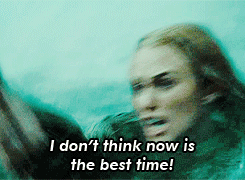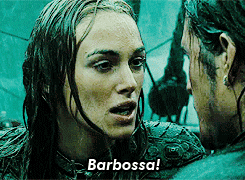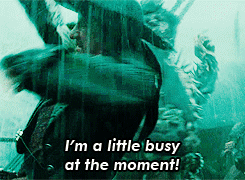Photo
I actually think I've said some of this... to straight people...










Video
#gaaaaaay#lgbt#lgbtq#bahaha#I'm not very nice when I'm tipsy#I love people's reactions#flip the script
271K notes
·
View notes
Video
tumblr
if anyone ever asks me what tumblr is i’m gonna show them this video and just walk away
1M notes
·
View notes
Text
Writing the Perfect Query Letter
The point of a query letter is to sell your story.
Writing your query letter, your goal is to make the reader want to pick up the book. That is the entire purpose. We’ve all recommended books to friends before. It’s exactly that, except now that book is yours and the stakes are high. A query letter is, above all, persuasive. While writing your query letter, make sure you draw your reader into your story with every word.
A query letter is not a creative letter; it’s a business proposition.
Writing a query letter, don’t think of yourself as a writer, especially not of this particular story. You are now Don Draper. He’s creative, but not a creator. His job is to make the product appeal to the consumer. He’s not rolling the cigarettes. He’s selling them. You were the writer of your manuscript. Now you’re its ad man. An industry professional. Your task it to sell an idea to someone you want to sell your idea (the agent) to someone you want to sell your idea (the editor) to someone you want to buy your product (the reader). By querying your manuscript, you’re requesting a place in an industry. This means that you should follow some industry standards:
Use business letter formatting. 12 point font. Single spaced. Left alignment. No indentations. A space between paragraphs.
Don’t be familiar. This is a business letter. A formal letter. Unless you already have some sort of a relationship with the person you’re querying, if you’ve met at an event or corresponded in some other regard, write like you’re writing to a potential business associate.
Write the letter as yourself. Don’t write as your character. Don’t write as your narrator. Don’t write as the historian who discovered your story 1,000 years into the future. It’s a risk that rarely pays off. On that point…
Don’t be creative with the form of your query. Save the creativity for your manuscript. Don’t think out of the box. Don’t quote a section in your opening lines. Don’t include a box of chocolates with it when you mail it off. Don’t be gimmicky. If you feel the need to resort to a gimmick, the agent is going to assume it’s because you don’t know how this works or your story isn’t strong enough to stand on it’s own. Play by the rules. Trust in your story.
Keep it short. 250-400 words. Remember your goal: to get them to pick up the book, to spark their interest. Agents can read hundreds of queries a day. They don’t have time for wasted words. They’re looking for an excuse to go on to the next query. To get through their inbox. Get to your point as quickly as possible.
Writing Your Query:
You don’t have long to tell your story. Just a page. This means you can’t include much more than the information that is absolutely vital to your story and the querying process. I’ve outlined the information, and separated it into paragraphs. You don’t have to divide it the way I’ve set out here, but these are the general lumps of Query Stuff.
Each point I’ve bulleted should only be a sentence or two long in your query. If your reader wants to know more, they’ll read the first chapters and request the manuscript.
The Opening Lines: The Formalities
Address the agent. As this is a business letter, start with a “Dear Mr./Ms. [First Name, Last Name] or [Last Name]:” For example: Dear Mr. Tolkien:
State your intent. In my research I’ve found this unecessary, but if you choose to do so you can say something along the lines of: “I’m submitting for your consideration my completed novel, [TITLE]…”
The First Paragraph: The Introduction
The meat of the letter. You should introduce your story as cleanly as possible. It should be minimal, yet evocative. Specific to your story, but skimming the surface of it. The more set-up you give, the more complicated you’ll make things for yourself.
The set up. What was life like for the character when the story began? Where does the story take place?
The inciting incident. The “but when…” What set the ball rolling? This can be in the same sentence as the setup.
The combination of the set up and inciting incident should work as a sort of tagline.
Character motivation. What does your character want?
The Second Paragraph: The Story
I’ve made this a separate paragraph because shorter paragraphs make a page more inviting for a reader. In this paragraph, you don’t want to summarise the entire book; you want to show your ability to weave a compelling story. It should have energy. It should tell the reader just enough to get them excited.
Highlights of the first two acts. Give your reader the flavor of your story with the juiciest bits of the rising action. This part can be a few sentences longer than the rest. Make these specific. Don’t say Jane gets injured. Say Jane was caught in a swarm of flying tea cups.
The central conflict. What is the main obstacle your character will face to achieve their goal? What’s at stake?
The hook. The line or question that will make your reader want to read more. If you’d like, you make it it’s own paragraph.
The Third Paragraph: The Details
Some people make this their first paragraph, but I’ve decided to put this after the introduction to the story. These are the formal details of your story, where it gets very Industry.
The title. You might have said it earlier, but it won’t hurt to say it again here.
The word count, genre, & age range. All necessary industry information. Round your word count to the nearest 1,000.
Comp titles. What books might this person have read that are similar to your own, either in tone/setting/story? This can give your reader a sense of the potential audience for your story. You only want to include one or two.
If you really want, you can choose to personalize the submission here and say why you’ve queried this particular agent. If you only want to show that you’ve done your research, you should have already gotten this point across clearly with the summary, age range, and genre. But, if you really love this agent, if you follow their blog or twitter or love some of their authors, it won’t hurt to say so.
The Fourth Paragraph: The Author
The last paragraph is usually set aside for a line or two about yourself. This should only include information relevant to writing this manuscript: awards, university degrees, writing conferences/workshops attended, expertise related to the content of the book. You should be able to summarise this paragraph with: here is why you should trust me to tell this story.
If you don’t have any qualifications, say what else you’re currently writing/enjoy writing/have written. Let the agent get to know you as a writer outside of this one story. If you have qualifications, you can still save a line for this.
The Closing Line
Thank the agent for taking the time to read your query. A small but important consideration.
Tips
Highlight your story’s strengths. If your story is funny, include the funniest moments in the short summary. If the writing is lyrical, your query should have a hint of that, too. You don’t want to drown the agent in your writing style, but you should splash them a bit.
DON’T INCLUDE THEMES. Don’t say this is a story about “friendship and the power or love,” or “children will relate to this story of bullying.” A query letter isn’t a literature class. Don’t analyse your manuscript for your reader. Let the story speak for itself.
Don’t sing your own praises. Don’t say that your mom loves your book, or that your little cousins devoured it. Don’t compare it to Harry Potter or any other best-seller. Don’t say you think the book will sell well. The agent won’t believe you.
It’s okay if it takes you days and days to write your query. It should take days to write. Whether or not the agent even looks at your first chapter will depend entirely on this single page. You can write the novel of the century, but no one will look at it unless your query sells it.
Have someone else look over your query before you send it out. Share it with the smartest person you know. Share it with your old English teacher. Share it on a writing website, like r/writers. Have them judge it on clarity and quality. Ask them where it can be trimmed. Ask them what they think the strongest sentence is. Ask what the weakest sentence is. Have them check for typos.
Triple-check you’ve spelt the agent’s name correctly. They’re looking for a reason to toss this query in the trash. Don’t give it to them in the first line.
Triple-check the agent’s submission requirements. Getting these wrong is another way to get your query tossed directly into the trash.
Let them know if there’s a potential for sequels. If you’re writing a trilogy, don’t try to sell all three books at once. Use this query letter to sell the first book of the series only. Then, casually let the agent know that “[Your Title] has the potential for two sequels continuing [Your Protagonist]’s story.” An agent wants you to have more than one book in your arsenal, but this is a short letter. There’s only room for the one book in it.
I know this is a long post, and it may seem like too much information to handle. If it all seems impossible to accomplish in a single letter, remember: you’re recommending a book. That’s all. It just happens to be your book.
Sources.
Writing a Six Sentence Synopsis
23 Successful Query Letters
How to Write a Query Letter
How to Write the Perfect Query- Agent Advice
The Anatomy of a Query Letter (Podcast episode: 1hr)
The Narrative Breakdown (Podcast episode: 35min)
9K notes
·
View notes
Text
How to Outline: For Beginners to Writing Veterans
Let me start out by defining a few things:
Pantsers
These types of writers generally plan out very little before diving into their novels. They might have some ideas, maybe a small outline, but they feel free to take their story in any direction they please. The lack of outlining and planning lends itself to untethered creativity.
Plotters
These types of writers usually have some sort of outline that they follow while writing their novel. They spend some time planning and rewriting their outlines and know what’s going to happen (to an extent). Usually the novel is planned out before they begin writing it, which cuts out the element of surprise for the writer and tends to reduce writer’s block.
There’s no right way to be, but personally I’m a plotter. I probably plot too much. If you’re a pantser and it’s working for you, keep doing it! More power to ya!
However, if you’re looking to experiment with plotting or you just want to learn how to do it, check out these tips below:
Where to Begin:
Skeleton Outline
If you’re looking for a little bit of direction, but don’t feel like/find it necessary to build a huge outline, this is probably what you’re going for. Create an outline that focuses around the main points of your story.
Detailed Outline
A detailed outline usually builds on what you did for the skeleton outline. This adds more detail to the structure of your story and helps focus on fleshing out what’s going to happen throughout the novel. I usually add in some sections about my characters and any sort of world building I might do.
Chapter-by-Chapter Outline
This is literally when you plan out each chapter of your novel. Some might find it unnecessary to get that detailed, but if you have pacing problems or want to cut down on extensive editing, this might work best for you.
How to:
Skeleton Outline
This is essentially the “road map” of your story. Figure out what the conflict is and focus on the beginning, middle, and sometimes the end (a lot of writers aren’t completely sure what their ending will be, but sometimes it helps to have to planned out so you can effectively lead up to it in the story. It could also help with tone issues. Example—if you ending is dark, you might want to set up the audience for that).
For a skeleton outline it helps to focus on story arcs. For example,
· Stasis
· Trigger
· The Quest
· Surprise
· Critical Choice
· Climax
· Reversal
· Resolution
Learn more about story arcs here: http://www.dailywritingtips.com/how-to-structure-a-story-the-eight-point-arc/
Filling out those story points will help you build a more detailed outline if you choose to do so and will help you focus your story, so it’s not all over the place. If you want to have a clear idea where you’re headed, but don’t want to bog yourself down with the details, a skeleton outline might be best for you.
Detailed Outline
For a detailed outline, you basically just take your skeleton outline and flesh it out. Add to each section of the story arc and drop in more detail. Focus on what scenes will help you get across each main story point.
For example:
Stasis – Amy lives with her mother and her sister in a house that’s nearly falling apart. She’s unhappy with her life and her family doesn’t treat her well.
This is Amy’s everyday life, but you can do more to plan it out before jumping into writing. What’s Amy’s home life like? What does her family do to treat her poorly? What scenes will you explore to show the audience what’s going on.
Maybe Amy’s sister teases her or makes her do all the chores. Maybe Amy’s mom often doesn’t come home or doesn’t take care of her children. Explore these ideas and use them to flesh out your outline. Then, you’ll have some idea what to write when the time comes, instead of just something vague. This could also help you cut down on telling instead of showing.
Chapter-by-Chapter Outline
This takes a lot of time, but from experience, it does help cut down on the editing process, AND it helps you write a synopsis and query letter when or if the time comes. I spent around a month writing my last chapter-by-chapter outline, so I know exactly what I’m going to do when I start writing. I prefer this because I know I won’t get stuck and I’ll be able to get through the draft quickly. If you like to write fast, which I do because I like to keep my excitement for my project up when I’m writing, a chapter-by-chapter outline might work for you.
A chapter-by-chapter outline might be difficult for your first time writing a novel because you might not know how long it should be or what your strengths and weaknesses are as a writer. There’s no right answer for how long a chapter-by-chapter outline should be because only you know how long your chapters usually are or if you have any problems with word count (Is your novel usually too long? Too short?).
Anyway, if you feel like you want to do a chapter-by-chapter outline, I usually do something like this for each chapter:
Chapter 1:
Paragraph or more about what’s happening in the chapter. Think about each chapter as its own tiny story. Each chapter should have a beginning, middle, and end, and should lend itself to the overall story. Think about what the purpose is for each chapter and what information you want to convey to the reader.
Conflict (I tend to write a sentence about what the conflict is in each chapter. If I can’t find any, I know that’s a sign I need to rewrite that section of the outline. There should always be conflict! There should always be something driving the plot forward!)
I also suggest letting your chapter-by-chapter outline sit for a week or so and editing it. I know that sounds like a lot of work, but that will help your catch any plotting, pacing, or conflict problems BEFORE you start writing. If you’re a planner, this will help tremendously.
Additional Notes:
Obviously, some people like editing. They feel that’s when their story really comes together and they love that aspect of it. They like tearing their story apart, starting over, and building something new. That’s perfectly okay! You don’t need to have a detailed outline if that doesn’t work for you.
The reason I focus on planning is because I can look at the bigger picture before I start the draft. I have a clear focus and I know what’s coming next.
Also, there are plenty of ways to write an outline. How I do it isn’t necessarily right, it just works for me. Experiment with it until you find something that makes you feel comfortable.
What I’m really saying is:
There are no rules for writing. Whatever feels right or whatever makes you happy is what you should focus on. If you don’t want an outline, don’t write one. If you’ve been having trouble with writer’s block or the editing process, maybe try it out! Figure out what’s right for you!
17K notes
·
View notes
Text
Guide: Attracting Readers on Fiction Sharing Sites
batsintheshadows asked:
Dunno if this is really your department but after many months of writing I’ve finally finished a story and put the first chapter on ao3. How do I raise interest in it? I’ve never shared my work online before and hell, I made an account just so I could publish. I know it’s not likely that I’ll get huge renown because I don’t have a fan base and stuff, but the idea of being completely obscure worries me.
1) Quality Matters
The most important thing you can do is make sure your stories are well written and highly polished. No matter how good your story is, people aren’t going to appreciate it as much if it’s riddled with spelling errors and bad grammar. Likewise, if your story is boring or confusing, all the polishing in the world won’t save it.
2) Write First, Post Later
I realize that “posting as you go” is a pretty common method on fiction sharing sites, but it leads to a lot of problems for a lot of writers. For one thing, unless you have a very clear vision for your story, where you are by chapter ten could be very different from what you had in mind at chapter one. This can force you to do a lot of retconning and can result in poor continuity, both of which can lose the reader. Posting as you go also puts a lot of pressure on you as a writer, because you know there are people waiting for the next chapter. This can be very motivating for some people but tends to be demotivating for most of us.
3) Post Consistently
If you’re posting chapter by chapter, the biggest favor you can do for yourself is to post consistently at reasonable intervals. Once a week is a great interval because people are already accustomed to it because of episodic television. If you post too often it can turn people away, but if you post too infrequently, people can lose interest.
4) Reciprocate
Some of the most frequent users of creative arts sharing sites are the people who share their work there. In other words, a lot of your readers will be writers, too, and they also want people to read their stories. If someone leaves you a comment, a kudos, a favorite, etc., click on their profile and see if they have any stories you might enjoy. And, if you’re not already, make sure you’re reading and commenting on other stories in your fandom. If those writers see that you have stories, too, they’ll be more likely to check them out.
5) Be Friendly
If someone takes the time to comment on your story, comment back! Thank them for their comment and remind them to check back next week (or whenever) for the new chapter. If they say love a particular character you included in your story, tell them what you love about the character. If they say they liked a particular element in your story, tell them what inspired you to include it. Communicating with your readers fosters a sense of kinship that will keep them coming back for more and may make them more likely to share your story with others.
6) Tag Effectively and Appropriately
If you’re not already, familiarize yourself with the tags in your fandom. Tag your story with as many of the tags as you can, but only if they’re relevant to your story. Incorrect tagging can upset readers, but using tags that are even the slightest bit relevant can open up more avenues to your story. Don’t forget to tag for elements, too, like “angst,” “unrequited love,” “family,” “military,” etc.
7) Marketing Matters
Online fiction may be free, but the reader still pays a price in time spent reading. That said, you need to market your story as you would a published book, starting with creating a compelling title. Choose something that has impact but is relevant to the story. For example, if your story centers around wildfire, you might call it something like “Falling Embers.” If you can find a title with dual relevance, that’s all the better. Just try to avoid titles that are overly long or contrived. Simple titles with impact are always best. The next place a reader’s eyes go after the title is to the blurb, so you’ll want to create one that hook’s the reader’s attention and makes them want to know more. There are a lot of helpful articles online that can help you craft a compelling blurb. Finally, don’t be afraid to promote your story on your blog, tumblr, etc. There are lots of creative and non-annoying ways you can do this. One is to create quote or lyric graphics on a free site like Canva. Since you’re not actually selling anything, you can get away with using pictures from the show, movie, etc.–as long as you’re not using someone else’s art or manipulation without permission. Be sure to put the name of your story and the site where it’s posted somewhere on the graphic (noticeable but not excessively prominent), and also put in a link. Then post it on tumblr and tag it appropriately. This is a way people from the fandom can learn about and find your story.
8) Be Patient
This is by far and away the most important thing you can do. Building an audience takes time and effort, so if you expect to wake up in three days with three-hundred readers, you’re going to be disappointed. Even if your story only gets a few comments, kudos, etc., don’t get discouraged. Keep at it. When you get to the end of that story, start a new one. The more stories you post, the better you’ll get and the more likely people are to see your stories. If your writing is good, time and a little extra effort will do the rest. :)
818 notes
·
View notes
Text
What would your OC prefer?
To start off this blog, here’s an OC question post for character development! Have fun!
Pancakes or waffles?
Cereal with milk or cereal without milk?
Comedy or tragedy?
Sleep in goofy pajamas or nude?
Camping or hotel?
Sweet or sour candy?
Walking or biking?
Fire abilities or ice abilities?
Wooden pencil or mechanical pencil?
Hats or no hats?
Modest clothing or flashy clothing?
Finger-snapping or whistling?
Long hikes or long car rides?
Long car rides or travel by plane?
Stormy night or sunny day?
Summer or winter?
Game night with their family or movie night with their friends?
Chewy candy or hard candy?
Band or football?
Lucid dreaming or never having to sleep?
4K notes
·
View notes
Text
an in depth oc about page for anyone who wants to use it. feel free to reblog / edit blah blah.
full name. pronunciation. meaning of name. aliases. age. date of birth. place of birth. zodiac sign. species. race. nationality. gender. sexuality. profession.
appearance. height. weight. eye. hair. complexion. build. voice. traits.
relationships. parents. siblings. children. enemies.
mental. education. literacy. languages. disorders. habits.
traits. positive. neutral. negative.
moral alignment. jung. enneagram. four temperaments. tropes. archetypes. tarot cards.
stats compassion. empathy. creativity. mental flexibility. passion. stamina. physical strength. battle skill. agility. strategy. teamwork.
strength. intelligence. wisdom. dexterity. constitution. charisma. reflexes. willpower. luck.
musical-rhythmic intelligence. 10/10 visual-spatial intelligence. 10/10 verbal-linguistic intelligence. 10/10 logical-mathematical intelligence. 10/10 bodily-kinesthetic intelligence. 10/10 interpersonal intelligence. 10/10 intrapersonal intelligence. 10/10 existential intelligence. 10/10 naturalistic intelligence. 10/10
3K notes
·
View notes
Text
Legit’s Character Development Worksheet
There are lots of character development worksheets out there, but in my opinion nothing that really examines a character’s growth and development, which is what I’m aiming to do with mine. You can use this to better understand your character, spot “holes” in their development, or to build a character from scratch!
_____________________
Ancestry
What is this character’s lineage?
Are there any genetic factors that may affect them? (Mental illness/disabilities that run in the family, magical lineage, etc.?)
What is/was their parents’ social class?
What are their parents/caregivers like prior to their being born?
If not raised by their parents, then by whom? Are their caretakers of a different social class than the character? How are they treated as a result?
In the case of non-human characters, what is the status of their “kind” prior to their birth/construction/etc.? (E.g., are they the first generation of a new AI? Are they the first generation of vampires to live in the light?)
Are there changing social values between prior generations and their own that may affect them?
_____________________
Circumstances at Birth
What is their parental status at birth? (Single mother, both parents, etc.)
What social class is your character born into?
What is expected of your character based on the social class that they are born into? By their parents/caregivers? By the society they live in?
How are they advantaged/disadvantaged at birth? Disability? Poverty? Etc.
Are there any circumstances surrounding their birth that may affect their early childhood? (For example, they were unwanted by their parents/caregivers, they were the long-awaited heir to a kingdom, or they were born (assigned as) a girl when the parents were hoping for a boy?)
_____________________
Childhood
If they lose a parent/are orphaned/adopted/parents divorce, etc., at what age does this happen? a.) How does the age at which this happened affect them? Do they remember this change? Are they affected by the change?
Does their social status/class change at any point during childhood? Why?
What is their relationship with their parents/caregivers like? How do these interactions affect them in later life? (For example, a perfectionist character may have only received approval from their parents for big achievements.)
Do they have siblings or other close relationships with family members of a similar age? (Do bear in mind that early relationships with siblings can play a strong role in the way that people approach friendships in later years.)
If they have siblings, what is their birth order, and how does this affect them?
What are some of the most impactful moments from their childhood? How do these moments affect them? What do they learn from these experiences? (E.g., “authority figures aren’t to be trusted).
Was their childhood a happy one? If not, how do they see their childhood as an adult? Does this make them angry, do they try to ignore it, or have they moved on?
What are their typical social interactions like as children? Do they have a lot of friends, are they shy, etc.?
Do they exhibit expected behaviors or have difficulty conforming? (Conforming to gender roles or not, for example.)
What are their primary interests as a child?
_____________________
Adolescence
Is there a turning point that moves your characters from childhood and into a more “mature” perspective? (For example, the death of a loved one.)
Does their social status/class change at any point during adolescence? Why?
How does their relationship with their parents develop from childhood to adolescence?
Do any major changes occur in their life during adolescence? How do these changes affect them?
In the case of MOGAI characters, at what point does your character realize they are “different” than the expected social norm? What are the circumstances surrounding that?
What is your character’s attitude toward sex and sexuality? How does their interaction with their parents/caregivers affect them?
How much independence is your character granted as an adolescent?
Does your character have more/less responsibility than the typical adolescent? In what ways? (For example, having to take care of a younger sibling.
How does their social life change (or not change) from childhood to adolescence?
How are they prepared for adulthood as an adolescent?
When in their society are they expected to become an “adult”?
How do their interests evolve from childhood to adolescence?
Is there a defining moment that transitions them from adolescence into adulthood? (Joining the military, moving out, etc.)
_____________________
Adulthood
What is their primary attitude towards life based on their experiences in childhood and adolescence?
What kinds of events would be necessary to change these attitudes?
Does their social status/class change as they reach adulthood, or at any point after? Why?
Are they generally independent as an adult? Why/why not?
Do they retain their relationship with their family on reaching adulthood?
Do they retain their social group from adolescence?
How/where do they meet new friends/love interests?
What is their attitude toward romance/love/family? What are their main goals regarding this as they enter adulthood?
What is their main goal as an adult? (A high-paying career, romance, family, to have fun, to survive, etc.)
How do their goals change over time? As they meet old goals and set new ones?
How do their interests mature from adolescence to adulthood? (For example, an interest in writing as a teen may lead them to a career in publishing.)
_____________________
Older Age
Do they accomplish their goals as set out in earlier adulthood? How do they feel if these goals are not met?
As they approach older age, what is their social class?
Do they build a family in their adulthood? What is this family like?
If they become a parent, how is their relationship with their children affected by the relationship they had with their own parents?
What do they want to “leave behind” in the world?
Do they become a mentor/teacher to others?
As they grow older, how do they feel about the concepts of aging? Weakening? Death?
Think outside the box as you answer these. Remember that if you bend and stretch them enough, these questions can fit into virtually any world.
23K notes
·
View notes
Photo
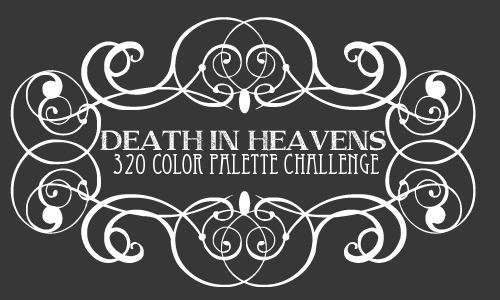

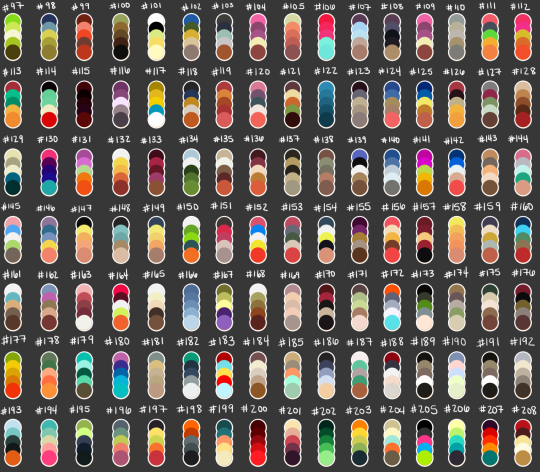

Colors from Adobe Color CC (Kuler)
Respect artist rules
Request via ask box
10/26 Updated with more colors
100K notes
·
View notes
Text
Cute Drawing Prompts
Art block? Same here. Send me an ask to have one of these prompts drawn! Feel free to rebog.
Pride - Draw [Character] using the flag of their/your sexuality/gender as a color palette.
Nationality - Draw [character] with the colors of their nation’s flag as a palette.
Old Friend - Draw one of your favorite childhood toys/imaginary friends/friend/etc as a human (if they aren’t already).
Delicious - Draw yourself wearing the last meal you ate. Make it into an outfit!
Closet Cosplay - Do you look like a fictional character? Draw that character in any outfit from your closet that suits them.
Video - Draw [character] watching a home video or old video diary.
Recording - Draw [character] FILMING a home video or video diary.
Airport - Draw [character] waiting to board a plane at the airport.
Plane - Draw your character entertaining themselves on a plane.
Candy - Draw [character] with their favorite candy.
Milkshakes - Draw [character] and their friends out for a drink n a 50′s style diner.
Which should I do, and what character?
505 notes
·
View notes
Text
i really liked that list of random expressions for fave characters and/or ocs and also i really just like somewhat obscure drawing prompts anyway but i have such a hard time finding prompts that really catch my interest so i decided to put together my own list. feel free to draw (or write, or whatever your medium of choice is) these out however you feel is best to interpret them. or have people send you a character and a number. up 2 uuuu
you said something funny during dinner and i snorted so hard theres a strand of spaghetti dangling out my nose now and everyone is losing their shit
you were taking a shower but i really really had to use the bathroom so hello, i’m here now, don’t mind me
being exposed to music that is definitely not what i am used to hearing
i have no clean clothes left other than the first cosplay i (or you, the artist) ever put together, shit shit shit
farted in church
i have to use the bathroom explosively right now and there’s a line
additionally to number six, i am one of the people in that line that you just jumped ahead of.
my buddypal/s.o. just got shit on by a seagull. because i jokingly shoved them coincidentally into the line of fire.
its 2am and i heard a scary noise downstairs, i think there’s an intruder…….
its 2am and i am that intruder.
ive been hired to babysit the neighbor’s kids, this is my first job ever and i haven’t been able to find the kid(s) for the last half hour
i made you this thing and i was so excited to give it to you but you made a very disappointed face and later i found it in the trash
We’re at the mall and holy cow did someone seriously throw out almost an entire soft pretzel??? SCORE
i think the most recent piercing i got is infected…..awesome
you just sneezed in my face
i just woke up because there are some VERY COLD FEET pressed against my legs and the issue is that i dont share a bed with anyone
i now know exactly what a dead body smells like
ive just had the earth shattering realization im doing that Thing that my parent(s) always did that i hated
i have been presented with an action figure of myself
we were supposed to get together today and go out but ive had a horrible night and i feel like crap, would you be opposed to staying in and working on coloring books with me
that…. that is definitely a face in my toilet… and it just wished me a good morning
i saw a news crew while i was out today and danced around in the background while they were shooting, you HAVE to watch the news with me this evening now so you can see
im allergic to my favorite food now, all of a suddenly
its 1am and im feeling really emotional and pouring my heart and soul out to you
in addition to number 24, i found out a week later you repeated everything i told you to your buddies for a good laugh
pulling an all-nighter
in addition to number 26, finding out that all-nighter was for naught and i got a failing grade on that project anyway.
im surrounded by people who are joking about something that really hits close to home for me
i just found my old gameboy and pokemon crystal version, i wonder if it still works??
in addition to number 29, holy shit it does, there’s my old team and everything!
709 notes
·
View notes
Text
Drawing Prompts
Just a few drawing prompts that my friends and I are doing over the break. Do them if you want and tag them leprecorn or send me a message so I can see them D:
1. A non-human cyborg (part machine, part anything not human)
2. A creature from Wikipedia’s list of legendary creatures starting with the first letter of your name.
3. An original child superhero (no bb ironman)
4. An anime character in a realistic style
5. BADASS DRAGON (has to cover two pages)
6. A character from a strange perspective
7. A comic
8. A video game character in a completely different video game setting
9. A hybrid of an animal and an inanimate object
10. Environment
11. Alien Landscape
12. Medieval vehicle based off of a modern one
13. A dancer
14. A picture only using shapes
15. A super detailed character or environment drawing on a sticky note
16. A character or face using only solid black or white
17. A spider arm wrestling a kangaroo
18. Design a pokeball
19. An extinct animal
20. A pun
21. Draw something so it looks like a stained glass design
484 notes
·
View notes
Text
20 Day Drawing Challenge
Comprised a list of cool drawing prompts that I’ll be doing for the next month or so. If you’ve got an idea send it my way!
DAY 1: Draw yourself/persona
DAY 2: Your favorite cartoon/anime character
DAY 3: Something the represents your favorite song
DAY 4: FLASHBACK
DAY 5: Your favorite artist/musician
DAY 6: Someone or something from mythology
DAY 7: A couple (any two people)
DAY 8: Draw your OC with their friends
DAY 9: Something with your favorite color
DAY 10: SPACE AESTHETIC
DAY 11: Favorite Book Character
DAY 12: An Emotion
DAY 13: Draw a Hairstyle
DAY 14: Illustrate your favorite quote
DAY 15: Draw your Star Sign
DAY 16: Design a Tshirt for a Band of your choice
DAY 17: Draw your OC with their weapon of choice
DAY 18: Draw your OC using their powers
DAY 19: Draw a character listening to music
DAY 20: Banner of completion
778 notes
·
View notes
Text
Journaling Ideas: 15 Writing Prompts For Your Journal
Everyday I find these kind of questions in my inbox. A lot of people don’t know what to write/draw about or how to start. I decided to make a post with journaling prompts.



Use the journal to write whatever it is you want to write! There is no wrong way to keep a journal; it is for your eyes only or for the eyes of exactly who you want to see it. I made up these prompts and found a couple on the internet:
How was 2014 for you? Happy, sad and memorable moments?
Write about your family. Do you have any brothers or sisters? How about your parents?
Write about your first love — whether a person, place or thing.
Write down some of your favorite quotes from famous authors, books or movies. Did you found a original quote? Put that in your journal too!
What are you thinking of right now? Express yourself?
Make a list of the people in your life who genuinely support you, and who you can genuinely trust. (Then make time to hang out with them.)
Describe your favorite childhood memory.
What’s your favorite song? How do you feel when you’re listening tot hat song? Do the lyrcs mean anything to you?
“The two moments I’ll never forget in my life are…” Describe them in great detail, and what makes them so unforgettable.
Write a letter to someone from your past. An ex-boyfriend or girlfriend, a friend you lost contact with or maybe a familymember. Describe the memories and write about how you feel about that person.
What scares you?
Is there anything you feel guilty about? Is there anything you need to be forgiven for?
What one word describes how you’re feeling today? Look up its definition in your journal.
Tired? Frustrated? What’s the deal? Well, start Journaling with “Today, I don’t feel like writing because…”
“Dear Future Me,”
There are a lot of ideas for your journal! Here are more websites:
30 Journaling Prompts for Self-Reflection and Self-Discovery
119 Prompts for Your Journal Jar
How to Journal: 5 Tips for Capturing Your Best Ideas (Part 1)
Keeping a Writer’s Journal: 21 Ideas to Keep You Writing|
Art Journaling
How To Use An Art Journal
Art Journaling 101
50 Art Journal Prompts
Tumblr-user Journaling-junkie also has a lot of journaling prompts. CLICK HERE for the link.

Love you, guys. XOXO. Happy journaling! And you’re welcome.

(I really love this gif)
1K notes
·
View notes
Photo
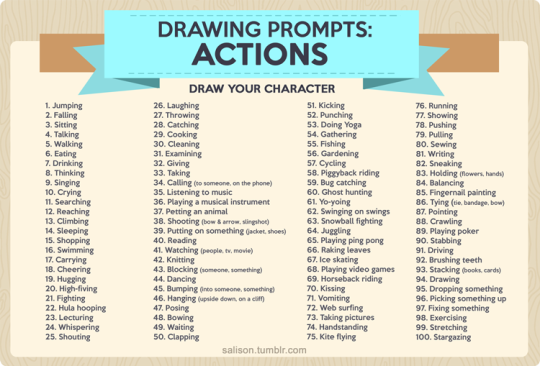
Rather than drawing your character standing there doing nothing over and over again, here’s 100 other ideas to put them in action and challenge yourself as an artist.
50K notes
·
View notes
Text
some AUs I thought of on the bus
“I brought u to my friend’s wedding as my plus one and it was really fun and all but now it’s the end of the night and we’re sitting alone together at the reception and all these twinkle lights and flowers everywhere are causing a hell of a lot of romantic tension between us and oohhhh no did our song just come on”
“we had a one night stand and as I was sneaking away the next morning I couldn’t find where the fuck my bra went but we’re like the same cup size so I just took one of yours but apparently that was like ur favorite bra and now you’re looking everywhere for me because u want it back oh god”
“our teacher brought up a really sensitive subject to use as a ‘debate topic’ and we’re the only ones fighting for one side while the rest of the class is against us so we kinda paired up and wow I always thought u were kinda boring but ur rlly cute when you get all passionate about something”
“I was waiting for my friend in the back seat of their car while they went to pick something up but you just got into the driver’s seat and got really confused when your key didn’t go into the ignition and i have no idea who u are so hi?? who are u???? this is not ur car buddy”
“my dog just ruined your child’s snowman and they started crying and I am so so so sorry oh my god he doesn’t usually do stuff like that”
“the tables have turned this week at the PTA meeting and this time it was helen that smacked your brownies out of your hand and told you to fight her and christ our children are cheering for you”
“u got a minor injury like a scraped knee or some shit but ur being a huge baby about it so I’m helping u out and wtf stop trying to flirt with me when you’re literally in tears”
“my hands are cold af so i grabbed your hand just to annoy you but you just took it and now?? we’re just walking around holding hands what is happening”
“we went on this group nature hike thing and u showed me this plant that was supposedly edible so I ate it but now my tongue is swelling up and i’m like 92% sure I’m dying I hate you”
“I started taking these yoga courses to chill out and get in touch with my inner peace or whatever the fuck, but i keep getting in trouble because instead of closing my eyes during the poses I’m just looking at the instructor”
“I threw a snowball at my friend but accidentally hit u instead holy shit I am so sorry I didn’t mea- WAIT STOP TRYING TO SHOVE SNOW DOWN MY SHIRT AS PAYBACK IT WAS AN ACCIDENT”
“you two are behind me at the movie theater and won’t stop fkcing whispering to each other wouLD YOU SHUT U- oh no you’re both cute”
“remember that time we made out at that party haha yeah wow how embarrassing wanna maybe try it out again but more sober this time??“
"I hired u to take care of my plants while I went on a business trip/vacation and yoU KILLED ALL OF THEM!!!! EVEN THE CACTUS HOW TEH FCUK”
"I called my roommate to ask if we should have grilled cheese or spaghetti for dinner tonight but I must have gotten the wrong number sorry haha wait what? no you don’t understand I don’t care which you’d prefer you’re not- no listen you’re not invited”
“I always thought u looked rlly mean but I guess the sun was just in ur eyes or something cause now that u aren’t glaring you’re actually kinda gorgeous”
3K notes
·
View notes

